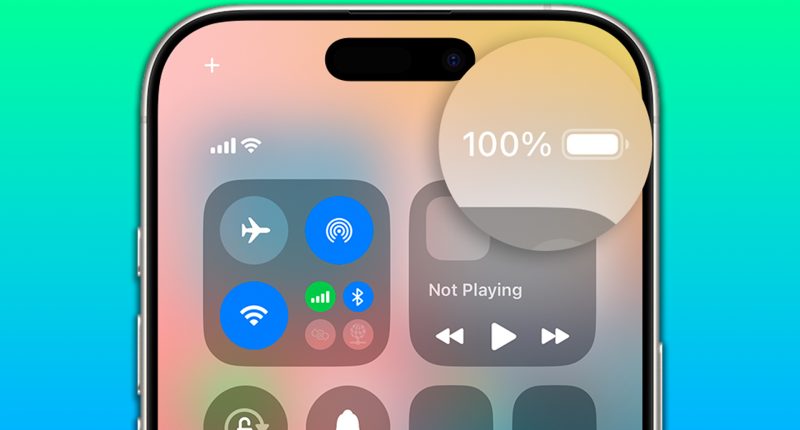Share this @internewscast.com
WANT to charge your iPhone to 100% in record time? There’s an easy way – and it’s got nothing to do with having a legit Apple charger.
But it’s important to know that there’s another reason why you should be using proper Apple cables and plugs anyway.

6
First up: charging more quickly.
Several iPhone models support fast charging, and you just need the right cable-and-adapter set-up to unlock it.
You can blast an iPhone 8 or later to 50% charge in 30 minutes.
The exact gear you’ll need depends on your iPhone model.
Apple says you’ll want to plug your charging cable into an 18W or greater adapter. It’s that W, or watt, number that is important. When iPhones came with chargers in the box, they were usually 5W.
You can bag a higher-than-18W charger from the Apple Store, but lots of other reputable companies – like Anker and Belkin – make them too. Apple’s 20W adapter is £19 right now.
And you need to make sure that it supports USB-PD, or USB Power Delivery.
It should say the wattage on the listing, so just make sure you’re getting something that’s at least 18W.
A good charger will also show the wattage on the adapter.
If you have Apple chargers at home, you can look at the bottom to see its wattage.
DON’T GET CAUGHT OUT
Be warned: temperature can ruin your fast-charging experience.
That’s true whether your mobile is getting too hot or too cold.
Apple warns that charging can slow or even stop completely if your phone is outside normal temperature ranges.
A phone can heat up pretty quickly, especially if it’s in direct sunlight, inside a car, or under a blanket.

6
And it’s at greater risk of heating up while it’s on charge.
Apple says you’ll want to be using it where the “ambient temperature” is between 0C and 35C – or 32F and 92F.
It’s also worth noting that letting your phone get too hot can permanently shorten its battery life. So that’s another good reason to avoid the heat.
WHY DO BATTERIES GET WORSE OVER TIME?

Here’s what you need to know
- Most gadgets run on lithium-ion batteries
- Over time, the amount of charge this type of battery can hold gets smaller
- That means you need to charge your device more often because they hold less charge
- Batteries have two electrode points – the cathode and the anode
- To charge a battery, the ions inside the battery are forced from the cathode to the anode
- When you use a battery, it moves in the reverse direction
- This process wears away at the structure of the anode, reducing its ability to function correctly
- But the process also builds up a kind of salt on the cathode when charging
- As this build-up grows, the battery will accept less charge over time
- It’s estimated that between 500 and 1,000 full charge-cycles will reduce a battery’s maximum capacity by roughly 20%
Picture Credit: Apple / The Sun
SO WHY USE AN APPLE CHARGER?
The point of using an Apple charger isn’t about getting top speeds.
Instead, it’s a safety issue.
There are loads of great phone charger brands out there – but plenty of dodgy alternatives too.
And if you’re snapping up bargain-basement adapters, there’s a chance they might not meet proper safety standards.

6

6
At least with an Apple charger, you know it’s designed properly for the iPhone.
“Customer safety is a top priority at Apple,” Apple explains.
“That’s why all of our products – including USB power adapters – undergo rigorous testing for safety and reliability.
“And are designed to meet government safety standards around the world.”
Apple says that it’s totally fine to use charging adapters and cables that it hasn’t made with itself.
And you can even get top charging speeds with those devices. For instance, well-known accessory giant Belkin sells a 20W charger for £14.99 (buy here).

6
But you need to be careful that you’re not buying unsafe cables or chargers.
“You can also charge iPhone with ‘Made for iPhone’ or other third-party cables and power adapters that are compliant with USB 2.0 or later,” Apple said.
“And with applicable country regulations and international and regional safety standards.”
But the company warned: “Other adapters may not meet applicable safety standards, and charging with such adapters could pose a risk of death or injury.”

6
Sadly there’s no easy way to tell that an adapter is dodgy.
So it’s best to stick to well-known brands with highly reviewed products, as any major problems are more likely to be public knowledge already.
It’s not worth risking a fire in the night just to save a couple of quid on an iPhone cable.








